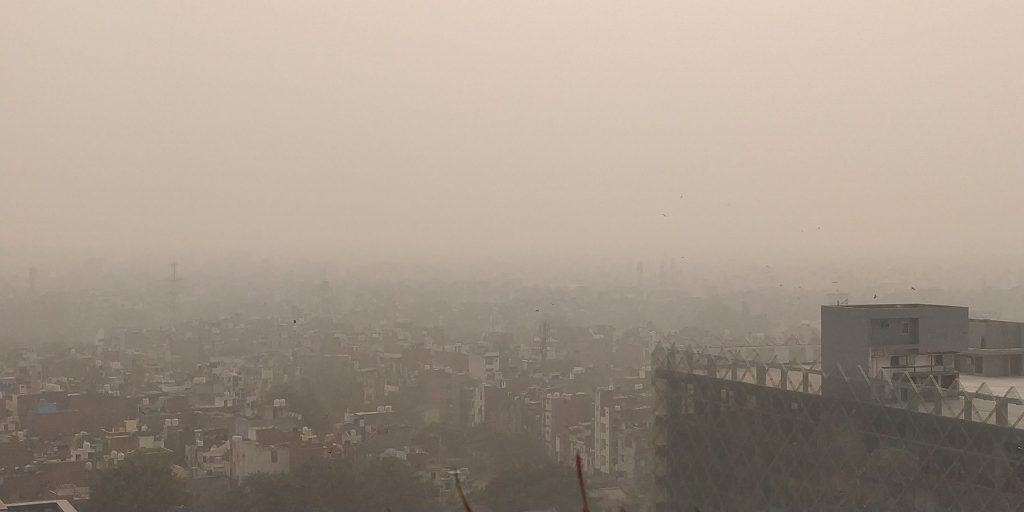Vaccine for people above 45 from 1st April
As the country faces the second wave of COVID-19 infection, the government has decided to boost the pace of vaccination in the country. The Central government has decided to widen the beneficiary base by allowing people above 45 years (with or without comorbidity) of age to take the COVID vaccine from 1st April onwards. Nationally, the vaccination drive was started on 16th January with healthcare and frontline workers. So far, more than 5.5 crore vaccination shots have been administered. In a separate development, the government has increased the time between the first and second doses of Covishield, and the second dose of Covishield can be administered between the fourth and eighth weeks respectively.
Source: Livemint
Read more: Most Mumbaikars are unaware of the COVID-19 vaccines?
MHA put states on alert, second wave intensifies
As the second wave of COVID-19 infection intensifies across the country, MHA is closely monitoring the situation and has written to all states to be on alert. The Union Health Ministry has asked the states to follow the mantra of ‘Test-Track-Treat’ in letter and spirit. The Union government has also advised states to take local containment measures in the light of upcoming Holi, Easter and Eid-ul-Fitr celebrations. The state governments can impose appropriate restrictions to avoid public gatherings and ensure Covid appropriate behaviour. The central government has also deployed teams in the states of Chhattisgarh and Chandigarh which have witnessed a sharp spike in the number of cases. States of Maharashtra, Punjab, Karnataka and Gujarat are states that are leading the surge in cases.
Source: The Times of India
Read more: It isn’t over: Bengaluru’s fight and the pandemic
PMPML buses to operate at 50% capacity in Pune
In order to curb the spread of coronavirus, the Maharashtra government has directed to operate public buses at 50% capacity. In Pune, the order will be implemented by Pune Municipal Corporation (PMC) which will now fine drivers and conductors of Pune Mahanagar Parivahan Mahamandal Limited (PMPML), if they are found operating buses with more than 50% occupancy. Moreover, the government has made it compulsory for both driver and conductor to wear a face mask, as well as for fellow passengers while traveling in a PMPML bus.
Source: Hindustan Times
Healthcare facilities under pressure in Nagpur
As COVID cases are rising in Maharashtra, the situation in hospitals Nagpur is alarming. Private hospitals have refused to allot rooms to patients. Subsequent reports have highlighted that patients are being accommodated on stretchers. Some private hospitals added more beds during the night of March 22nd & 23rd, but are still witnessing a high list of patients in waiting, with 20-25 such patients at any point of time. Hospitals are also facing a critical shortage of ventilators.
According to Nagpur Municipal Corporation, 388 oxygen beds, 100 ICU, and 56 ventilators were vacant in private hospitals and 195 oxygen, 67 ICU and 94 ventilators in government and civic hospitals. The reports further highlighted thelack of manpower to handle the machines and attend to cases in these healthcare facilities. Meanwhile, the Nagpur Bench of High Court has allowed use of the basement of Government Medical College Hospital (GMCH), which has 90 beds for COVID patients. The basement was shut last year after water leakage due to incessant rains.
Source: The Times of India
22 out of 30 most polluted cities in India
As per the recent air quality ranking released by the Swiss organization – IQ Air in “World Air Quality Report 2020”, 22 of the world’s 30 most polluted cities are in India with Delhi being ranked as the most polluted capital city and 10th most polluted city globally. However, the report shows that Delhi’s air quality improved by approximately 15% in 2020. Besides Delhi, cities of Ghaziabad, Bulandshahar, Bisrakh Jalalpur, Noida, Greater Noida, Kanpur, Lucknow, Meerut, Agra and Muzaffarnagar in Uttar Pradesh; Bhiwari in Rajasthan; Faridabad, Jind, Hisar, Fatehabad, Bandhwari, Gurugram, Yamuna Nagar, Rohtak and Dharuhera in Haryana; and Muzaffarpur in Bihar also finds a place in the tally.
Source: Business Standard
NGT wants a separate agency for restoring water bodies
While hearing a plea filed by Ghaziabad based environmentalist Sushil Raghav over encroachment of water bodies, the National Green Tribunal (NGT) directed all states and UTs to designate a nodal agency for restoration of water bodies in their respective regions. The order further said that the agency should function under the supervision of the Chief Secretary and it will hold a meeting not later than 31st March to take stock of the situation and plan further steps. According to petitioner Sushil Raghav, during the hearing of the case, the Ghaziabad administration admitted that out of 261 water bodies, only 49 were still free from any kind of encroachment.
Source: The Times of India
Also read:
- Chennai Buzz: Postal ballot introduced | COVID protocols re-initiated | CMRL to restore Shenoy Nagar park…and more
- Mumbai Buzz: COVID-19 cases through the roof, no Holi and fire in a hospital
- Bengaluru Buzz: 34 COVID-19 lineages | Nod to axe 450 trees | Auto fare revision… and more
Compiled by Rishabh Shrivastava
